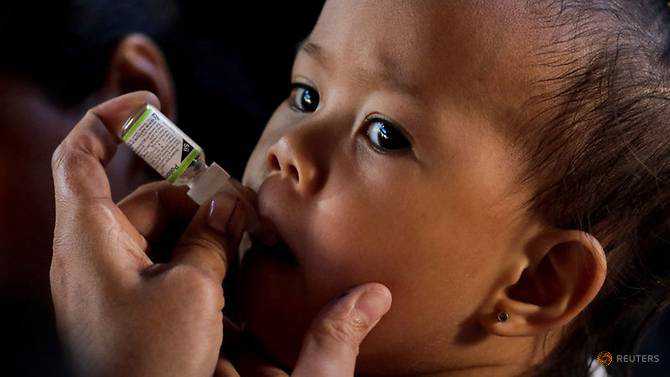Polio virus probably came from outside Malaysia, says health minister
10 December, 2019

The polio virus that infected a three-month-old Malaysian boy from Sabah is suspected to have come from outside the country, said Health Minister Dr Dzulkefly Ahmad on Monday (Dec 9).
The case was the first one reported in the country in nearly three decades.
Dr Dzulkefly said there were two possibilities of how the polio virus could have reappeared in the country - the virus either came via the Philippines or the infant’s family had travelled abroad.
However, according to initial investigations, the infant’s family members did not travel overseas.
"So in most likelihood, the virus came from outside Sabah as the family has no travel history.
"It could be brought in by an outsider coming to Sabah," he added.
Dr Dzulkefly said the baby started showing symptoms of the virus infection before getting the second vaccination.
"I hope parents would ensure that the three recommended doses are completed to prevent their children from being infected with such a disease," he said.
Dr Zulkefly said measures taken by the ministry include going to the residential area where the infant lived and giving vaccination to those below the age of 15 in the area.
"In addition, we will also identify areas that are at risk for this symptom. Currently, only vaccinations could help as the infection could not be treated with medication," he said.
"This virus may imitate and mutate, so we have to be careful and parents especially must ensure that their children are vaccinated," he said, adding that proper hygiene must be observed when handling babies as the virus could spread easily.
Dr Dzulkefly also dismissed claims that inactivated polio vaccine (IPV) caused the vaccine-derived poliovirus (VDPV) as it contained inactivated polio virus.
Throughout the use of oral polio vaccine in Malaysia, he said, over 80 million doses were given and no cases of VDPV were detected.
"All of the poliomyelitis cases previously reported in Malaysia were cases of wild poliovirus (WPV) infection with the last case reported in 1992," he said.
Dr Dzulkefly also urged all parties not to distort facts on the VDPV by obtaining valid information from the ministry.
"Parents and the public are urged to cooperate with the health ministry to curb the spread of the infection so that Malaysia is free from polio," he said.
Asked whether his ministry would make vaccination mandatory, Dr Dzulkefly said the government was now working to ensure that the country's immunisation programme is successfully implemented nationwide.
"We will do this first before making it mandatory by strengthening the immunisation programme throughout the country, particularly at Orang Asli settlements," he said.
In recent years, Malaysia has faced a challenge convincing some parents to immunise their children. In 2016, five children died from diphteria, a vaccine-preventable disease, prompting an outcry among health officials.
Source:
TAG(s):
